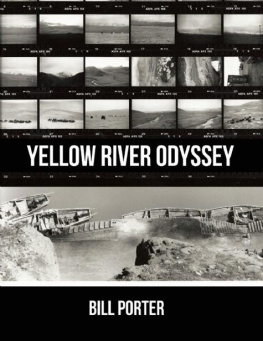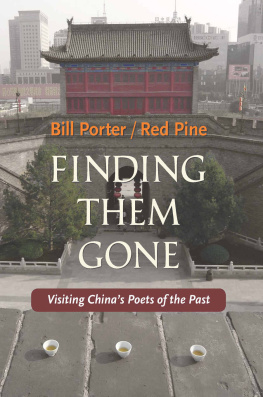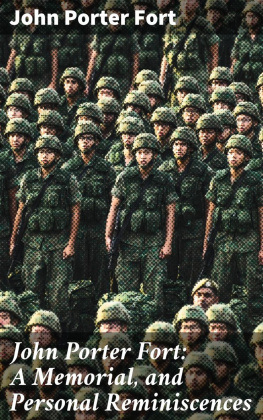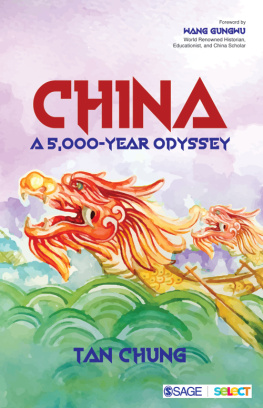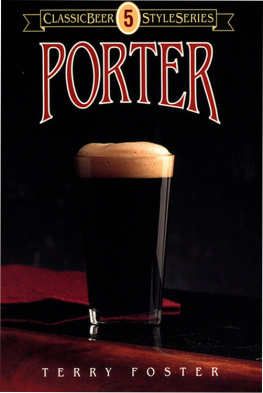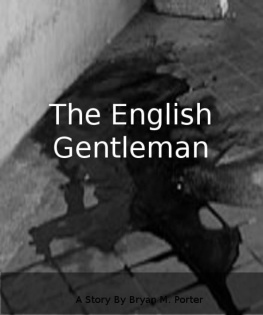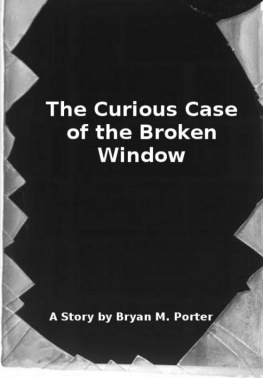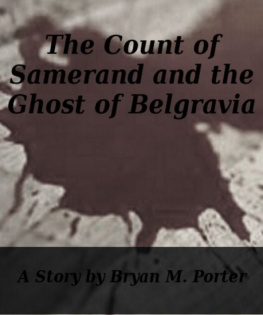Bill Porter - Yellow River Odyssey
Here you can read online Bill Porter - Yellow River Odyssey full text of the book (entire story) in english for free. Download pdf and epub, get meaning, cover and reviews about this ebook. year: 2014, publisher: Chin Music Press Inc., genre: Non-fiction. Description of the work, (preface) as well as reviews are available. Best literature library LitArk.com created for fans of good reading and offers a wide selection of genres:
Romance novel
Science fiction
Adventure
Detective
Science
History
Home and family
Prose
Art
Politics
Computer
Non-fiction
Religion
Business
Children
Humor
Choose a favorite category and find really read worthwhile books. Enjoy immersion in the world of imagination, feel the emotions of the characters or learn something new for yourself, make an fascinating discovery.
- Book:Yellow River Odyssey
- Author:
- Publisher:Chin Music Press Inc.
- Genre:
- Year:2014
- Rating:5 / 5
- Favourites:Add to favourites
- Your mark:
- 100
- 1
- 2
- 3
- 4
- 5
Yellow River Odyssey: summary, description and annotation
We offer to read an annotation, description, summary or preface (depends on what the author of the book "Yellow River Odyssey" wrote himself). If you haven't found the necessary information about the book — write in the comments, we will try to find it.
Yellow River Odyssey — read online for free the complete book (whole text) full work
Below is the text of the book, divided by pages. System saving the place of the last page read, allows you to conveniently read the book "Yellow River Odyssey" online for free, without having to search again every time where you left off. Put a bookmark, and you can go to the page where you finished reading at any time.
Font size:
Interval:
Bookmark:
YELLOW RIVER ODYSSEY
BILL PORTER

Chin Music Press | Seattle
Copyright 2014
By Bill Porter
Published by
Chin Music Press Inc.
2621 24 th Ave. W.
Seattle, WA 98199-3407
USA
http://www.chinmusicpress.com
First (1) edition
Cover: Boats tied up along an embankment on the Yellow River
Cover photo by Bill Porter
Cover design by Meaghan Brady
Interior design by Linda Ronan
Printed in Canada by Imprimerie Gauvin
All Rights Reserved
Library of Congress Cataloging in Publication Data Available upon Request
ISBN: 978-0-9887693-1-1

TABLE OF CONTENTS
SHANGHAI
I asked the concierge to unlock the window so I could smell the city. I was on my way from Hong Kong to follow the Yellow River from its mouth to its source and couldnt resist the temptation to stop in Shanghai for the China Coast Ball. This annual bacchanal was organized by and for the Hong Kong expatriate community, and it was normally held in March at the Belle Vista in Macao. But in 1991 the Belle Vista was being renovated, and the organizers turned to the Peace Hotel in Shanghai as a suitable replacement. The Peace had been boarded up during the Cultural Revolution, and the splendor of its art-deco interior had survived intact.
From the airport, I took a taxi to the Peace, but the Peace was full, as were the other hotels opposite the river promenade known as the Bund. The balls organizers were expecting over 500 members to show up and had reserved all available rooms six months in advance. Revelers were coming from as far away as Europe and Australia. Fortunately, a few blocks away, the former Russian consulate-generals residence had reopened the week before as the Seagull Hotel, and I had my choice of accommodations. The place still reeked of glue from the newly paneled hallways, so I sought relief in the lesser evil of the Huangpu River. And the concierge was kind enough to unlock my rooms window. The river flowed past the Seagull and the other hotels on the Bund, and twenty kilometers to the north it joined the waters of the Yangtze and the East China Sea. It was the junction of these waterways that was the reason for the citys existence. Most of Chinas billion citizens lived in the Yangtze watershed, and Shanghai connected them with the rest of the world. That didnt mean much until a few centuries ago, but the city had made up for lost time. I thanked the concierge and looked out onto the Bund.

In Samuel Coulings 1917 account of Shanghai in the Encyclopaedia Sinica , he wrote, The whole district is a mud-flat with no natural beauty, and art has done little to improve matters, except in a few of the buildings on the Bund. The city had changed, but I wasnt there to see the changes. I was there for the ball, and the ball was still a few hours away. So I went for a walk. From the Seagull, I walked north through what was once the American spoils of the Opium Wars. It began raining, but my parka kept me dry enough. A few blocks later, I entered Hungkou Park and stopped to pay my respects at Lu Hsuns grave.
Lu Hsun was Chinas greatest twentieth-century writer, and Shanghai was where he spent the last decade of his life, until his death in 1936 at the age of fifty-five. His bronze statue sat near his tomb in a bronze wicker chair. It was remarkable for its simplicity. I bought some flowers from a vendor and laid them next to a wreath left by a group of Japanese. To avoid arrest in China for his anti-imperial writings, Lu Hsun fled to Japan and stayed there until the Chinese Revolution succeeded in toppling the Ching dynasty in 1911. Despite his socialist leanings, he was, and still is, viewed as a hero in Japan. The park also included the Lu Hsun Museum, where it seemed everything he ever owned was on display: his pocket watch, his umbrella and, of course, his books and journals. There was a collection of woodblock prints he made early in his career that revealed better than words his sympathy for the sufferings endured by his fellow Chinese. They reminded me of the work of Kathe Kollwitz. I looked at his death mask and thought about the changes in China since he last closed his eyes.
From the park, I continued walking north and stopped several times to ask directions. I finally found the lane I was looking for and then the plaque for Lu Hsuns home. The two-story brick house was normally open to the public, but it was closed that day. A man across the lane saw me and said the caretaker kept the place closed whenever it rained in order to keep people from tracking mud inside. The mans name was Li Hou. He said he was an artist, and he invited me to join him for a cup of tea. While I sat in an armchair in his living room, he showed me his paintings, unrolling them one by one on the rooms cement floor. The long paper scrolls of black ink and colored washes made me think Lu Hsun had simply packed up and moved across the lane and exchanged the realism of youth for the abstraction of old age.
I would have stayed longer, but I didnt have time to linger. I thanked my host and headed back to the hotel. By the time I got back, it was dark. I looked outside my window again at the Bund. All the buildings were lit up. Bund was a Hindi word for a river embankment or promenade. The English picked up the word when they colonized India. And they brought the word with them to Shanghai along with opium. And that night their descendents had paid the city US$5,000 to turn on the lights normally reserved for special holidays, such as Lunar New Year and National Day.
In the distance, I could see taxis pulling up to the Peace Hotel and partygoers getting out. I walked down and crossed the bridge that spanned Suchou Creek and joined them. I entered the hotels revolving door along with several couples. And as we did so, we were greeted by a gauntlet of young Chinese girls wearing white ballet tutus and waving bouquets. We walked past them and waved back and crowded into an elevator. Eight floors later, we were swept into the ballroom. At the door, the maitre d was collecting invitations, and I didnt have one. And my purple parka did not exactly match the formal attire of the other guests. He motioned me aside. But I was prepared. I had a camera hanging from my neck, and I showed him my Hong Kong journalist ID. It was for Metro News, the English-language radio station where I worked. It didnt occur to the man that radio journalists didnt use cameras. But he waved me in anyway, and I joined a throng of more than 500 gowned and tuxedoed expatriates who were there to party. Just in case someone was looking, I took a few photos. But mostly I danced.
The music was supplied by the Peace Hotels Old Time Jazz Band, whose members were in their seventies and eighties. They had managed to survive the Cultural Revolution, and they could still play the Chatanooga Choo-choo. Fortunately, their age soon caught up with them, and they were replaced by a Chinese rock-and-roll band that blew out two sets of speakers playing Jimi Hendrix. The party lasted all night, and at noon the next day I boarded a coastal steamer heading north.

CHINGTAO
The ship was listing badly, and I was surprised it left at all. It even left on time and without fanfare. No one waved goodbye. I was on a ship full of migrant workers heading home. They watched silently from the ships railing as we moved slowly down the Huangpu River past factories and shipyards and the Paoshan Steel Mill and into the muddy Yangtze and finally into the equally muddy East China Sea.
Next pageFont size:
Interval:
Bookmark:
Similar books «Yellow River Odyssey»
Look at similar books to Yellow River Odyssey. We have selected literature similar in name and meaning in the hope of providing readers with more options to find new, interesting, not yet read works.
Discussion, reviews of the book Yellow River Odyssey and just readers' own opinions. Leave your comments, write what you think about the work, its meaning or the main characters. Specify what exactly you liked and what you didn't like, and why you think so.

